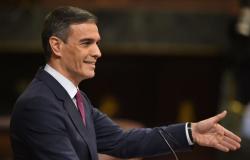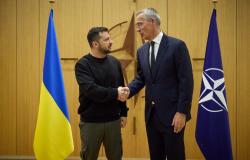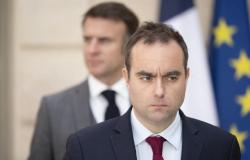Throughout Russian history, tsars sought ways to dominate what they called the “near neighborhood” of their vast empire. Today, President Vladimir Putin’s illegal invasion of Ukraine follows the same strategic principle.
If he wins, it stands to reason that Putin would turn his attention to the Republic of Moldova, the next stop in Eastern Europe – and where a separatist enclave, Transnistria, is already occupied by Russia. But there is another very attractive target nearby: the Western Balkans, the quoted source writes.
Putin’s targets in the Balkans
This turbulent territory in southeastern Europe counts four stable members of the North Atlantic Treaty Organization (NATO): Croatia, Albania, Montenegro and North Macedonia.
But the Kremlin has set its sights on “other prizes”: Serbia, Kosovo and the ethnically divided state of Bosnia-Herzegovina. “How might Putin seek to expand Russia’s influence and undermine NATO and European Union commitments in this important corner of Europe?” asks US Rear Admiral James Stavridis in an article titled “Putin’s New Front in the War from Ukraine is in the Balkans”.
James Stavridis states that he knows the Balkan region well from the time when he was concurrently in charge of the United States European Command (EUCOM) and Supreme Allied Commander Europe (SACEUR) in the period 2009-2013.
He also points out that he was the captain of a destroyer mobilized off the coast of the former Yugoslavia during the Balkan wars of the 1990-2000 decade, notably imposing an armed blockade against the aggressive regime in Belgrade.
And in those roles, he met with most of the top leaders in the region, including current Serbian President Aleksandar Vucici, former Croatian President Kolinda Grabar-Kitarovici, and Milorad Dodik, current leader of Republika Srpska, the Serbian entity within of the modern state of Bosnia-Herzegovina.
The breakup of Yugoslavia was accompanied by very bloody wars, resulting in over 100,000 deaths, including 8,000 Muslim men and boys massacred in Srebrenica (Bosnia-Herzegovina) in July 1995.
Tensions persist between the Roman Catholics of Croatia, the mainly Orthodox of Serbia and the Muslims of Albania, Kosovo and Bosnia-Herzegovina.
Putin seeks to benefit from this “unfinished history”. He knows that if NATO member states have to intervene again to calm the Balkans, then they will be distracted from supporting Ukraine.
In Kosovo, a former Serbian region whose independence neither Belgrade nor Moscow recognizes, NATO has deployed several thousand troops to keep the peace. Last year, the Serbian army went on high alert amid riots by ethnic Serb protesters in Kosovo that left 100 NATO soldiers injured.
These events forced the North Atlantic Alliance to reinforce its presence with several hundred more peacekeepers.
Putin is clearly encouraging Serbia to put pressure on the NATO-backed Kosovo government. He is also working to destabilize Bosnia’s fragile government, which is divided into a strange tripartite presidency, with one representative from each of the three major ethno-religious constituencies (Bosnian, Croat and Serb).
The most experienced local political actor is Milorad Dodik, who maintains close ties with Moscow. According to Stavridis, the leader of the Serbs in Bosnia-Herzegovina told him ten years ago that he wanted Republika Srpska to join Serbia, an act that Vladimir Putin would gladly support.
According to the American reserve admiral, such an approach would be a challenge from Putin, who is looking for any means to reduce confidence in NATO and divert attention from supporting Ukraine.
The options of the West
The West has options for this plan, writes the quoted source. For now, the idea of deploying NATO battalions to Ukraine is unlikely. Instead, steps like increasing troops in Kosovo and preventing the unrest that Putin is trying to cause are possible and make strategic sense, Stavridis notes.
The former EUCOM and SACEUR commander proposes a regional division of efforts within NATO, stressing that Balkan and nearby member states (eg Greece and Italy) can focus on this region, while Eastern European and Nordic member states I can focus on Ukraine.
The big Western countries – France, Germany, Great Britain and the USA – have enough resources to be involved in both areas, he says.
In addition to stabilization forces, NATO must take into account the so-called hybrid war waged by Russia against it. Putin is adept at using social media, disinformation campaigns and his propaganda to stoke tensions abroad. NATO must use its own information networks to expose and counter these false narratives.
It is not out of the question that the Russians will resort to cyber attacks against power grids and other vital targets in Kosovo and the non-Serb parts of Bosnia. Such attacks would create confusion and increase social discontent. In this case, NATO can support its allies and friends in the Balkans by providing them with more effective cyber defense systems.
Finally, Russian destabilization can be countered with economic stimulus. Like Bosnia-Herzegovina, Serbia is desperate to join the EU. Serbia’s ambassador to the US recently wrote a letter claiming that his country only wants peace.
The Serbs can show they are sincere by rejecting Putin’s manipulations and allowing the West to remain focused on its biggest challenge: Russia’s immoral war against Ukraine, James Stavridis concludes.
Vucici issue mysterious warnings
Stavridis’ analysis comes amid cryptic warnings from Serbia’s president. Two weeks ago, Vucici announced the organization of a so-called “Serbia-Republika Srpska Easter Assembly” scheduled for May 5-6. The announcement was made after a meeting between Aleksandr Vucici, Milorad Dodik and Patriarch Porfirie.
“At the Assembly, important decisions will be made regarding the survival of the Serbs in their ancestral homes, their economic progress and the preservation of the Serbian language, the Cyrillic script and the common cultural heritage,” says Vucici in a statement issued by his press office.
According to him, the Serbian and Republika Srpska governments have committed to prepare a joint declaration and potentially other general legal acts to be submitted to the legislative forums in Belgrade and Banja Luka.
“We informed Patriarch Porfirie about the seriousness of the political situation in which all Serbs find themselves and we asked His Holiness for the blessing and support of the Serbian Orthodox Church”, Vucici also claims in this statement, quoted by the Tanjug press agency, taken by Agerpres.
Vucici later reiterated that Serbia would soon face challenges that “directly threaten its vital national interests”, also alluding to an alleged uphill battle ahead that his country would eventually win.
“Difficult days are coming for Serbia. At this moment, it is not easy for me to say what news I have received in the last 48 hours. But they directly threaten the vital national interests of both Serbia and Republika Srpska. In the coming days, I will inform the people of Serbia about all the challenges ahead. It will be hard. We will fight. Serbia will win,” the Belgrade-based leader wrote on his Facebook page, without yet revealing the threat he has been evoking for weeks.
Follow us on Google News
Tags: Putins Front Ukraine War Balkans Russian President betting
-





